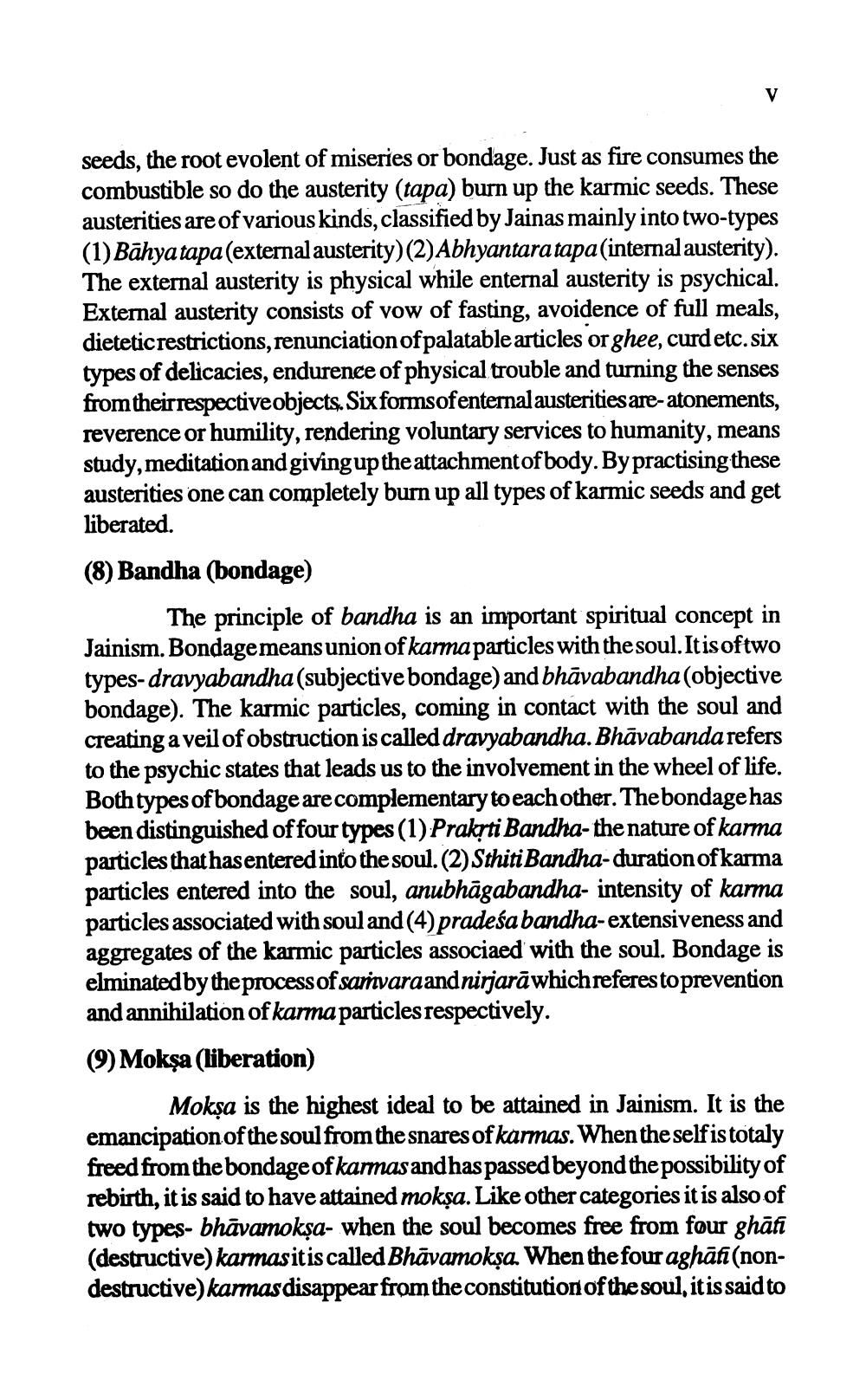Book Title: Navtattva Prakaran Author(s): Shriprakash Pandey Publisher: Parshvanatha Vidyapith View full book textPage 9
________________ V seeds, the root evolent of miseries or bondage. Just as fire consumes the combustible so do the austerity (tapa) burn up the karmic seeds. These austerities are of various kinds, classified by Jainas mainly into two-types (1) Bahya tapa (external austerity) (2) Abhyantara tapa (internal austerity). The external austerity is physical while enternal austerity is psychical. External austerity consists of vow of fasting, avoidence of full meals, dietetic restrictions, renunciation of palatable articles or ghee, curd etc.six types of delicacies, endurence of physical trouble and turning the senses from their respective objects. Six forms of enternal austerities are- atonements, reverence or humility, rendering voluntary services to humanity, means study, meditation and giving up the attachment of body. By practising these austerities one can completely burn up all types of karmic seeds and get liberated. (8) Bandha (bondage) The principle of bandha is an important spiritual concept in Jainism. Bondage means union of karma particles with the soul. It is oftwo types-dravyabandha (subjective bondage) and bhāvabandha (objective bondage). The karmic particles, coming in contact with the soul and creating a veil of obstruction is called dravyabandha. Bhavabanda refers to the psychic states that leads us to the involvement in the wheel of life. Both types of bondage are complementary to each other. The bondage has been distinguished of four types (1) Prakṛti Bandha- the nature of karma particles that has entered into the soul. (2) Sthiti Bandha-duration of karma particles entered into the soul, anubhāgabandha- intensity of karma particles associated with soul and (4) pradeśa bandha-extensiveness and aggregates of the karmic particles associaed with the soul. Bondage is elminated by the process of samvaraandnirjarāwhich referes to prevention and annihilation of karma particles respectively. (9) Mokşa (liberation) Mokṣa is the highest ideal to be attained in Jainism. It is the emancipation of the soul from the snares of karmas. When the self is totaly freed from the bondage of karmas and has passed beyond the possibility of rebirth, it is said to have attained mokṣa. Like other categories it is also of two types- bhāvamokşa- when the soul becomes free from four ghafi (destructive) karmas it is called Bhāvamokṣa. When the four aghafi (nondestructive) karmas disappear from the constitution of the soul, it is said toPage Navigation
1 ... 7 8 9 10 11 12 13 14 15 16 17 18 19 20 21 22 23 24 25 26 27 28 29 30 31 32 33 34 35 36 37 38 39 40 41 42
